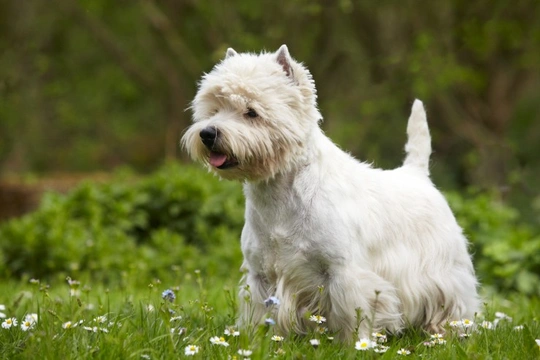
Spotlight on the West Highland White Terrier - Winner at Crufts
If you own dogs or have a special interest in them, it probably hasn’t escaped your notice that the world famous Crufts Dog Show took place last week at the NEC in Birmingham, over the course of four days that culminated in the hotly contested Best in Show Championship on the final night.
This year’s Best in Show winner was a West Highland White Terrier named Devon, and this is the first time in 26 years that a Westie has taken the top accolade in the show. Every year, the winner of Crufts is of course in the spotlight for a lot of attention over the following year, and this also serves to generate a lot of interest in the winning breed itself, including its core traits, appearance, and suitability as a domestic pet.
In this article, we will shine the spotlight on the West Highland White Terrier’s main traits, personality and appearance-and what their main plus points as pets are. Read on to learn more.
More about the West Highland White Terrier
The West Highland White Terrier is also widely known as the “Westie” for short, and they are a small, all-white dog breed from the terrier grouping. Interestingly, last year’s Crufts winner was a Scottish terrier, making it two years in a row that a terrier breed that originated in Scotland has won the Best in Show award, and the two breeds are in fact very closely related, as can be seen when you compare pictures of the two winning dogs side by side!
The Westie has a known history going back to the 15th century, and they were likely originally used for ratting and hunting, alongside of most of the other small terrier breeds. However, they are very rarely used in working roles today or in recent history, having been largely a companion pet for the majority of their history. As a small breed that is cute and distinctive for their fluffy white coats, the Westie is a popular toy dog or lap dog for those that like the company of a small, appealing dog that can be picked up if needed, but that still retains the outgoing terrier personality and core traits-a real dog, but in a small package!
Caring for the Westie coat
The Crufts Best in Show winner, Devon, is pure white and almost luminous in terms of colouring, sporting a typical show clip that leaves a long skirt of hair under the belly, which does make them apt to pick up dirt, muck and bracken when out and about! Various other types of clip, handstrip and trim are available for the Westie that are less high maintenance to look after on an ongoing basis, including an all-off clip, just a little feathering left on the legs and tail, or a puppy clip, which can also be performed on adult dogs.
While each of the various coat styles widely used for the breed have varying different care levels, it does mean that the Westie’s coat needs a reasonable amount of regular attention. They do not shed a lot of hair, which is a bonus that reduces the need for regular brushing, but they do need the odd bath and trips to the grooming parlour unless you have the skills to take care of their coat at home!
This means that the Westie is fairly high maintenance in this regard, but they are fairly easy to keep clean or clean up with some of the more workmanlike coat clip patterns.
The Westie temperament
Westies are energetic, lively little dogs that are fairy feisty and robust. They tend to get on well with other dogs and will get involved in games and play with much larger breeds, while holding their own and not getting left behind.
Some Westies can be rather shy or speculative, particularly with people that they don’t know, and may display a marked nervousness when taken outside of their comfort zone. When it comes to dealing with children, there is no hard and fast rule for Westies-some make for excellent family pets that get on well with children of all ages, while others will be nervous, evasive, and better left to homes without young children around.
While the Westie is usually kept as a companion dog or lap dog, they are still terriers at heart, and often display a marked prey drive, although they often live quite happily with cats if properly introduced.
Is a Westie the right choice of pet for you?
If you are looking for a small, active dog that will fit into a home small or large and join you for medium length walks, the Westie may be a good pick. They are versatile all-rounders that have moderate exercise requirements, so two half hour walks a day should be sufficient for them.
Not all Westies get on well with very young children, so if you have kids, it is important to let them meet the dog you are considering before you commit to a purchase, to see how they will get on together.



